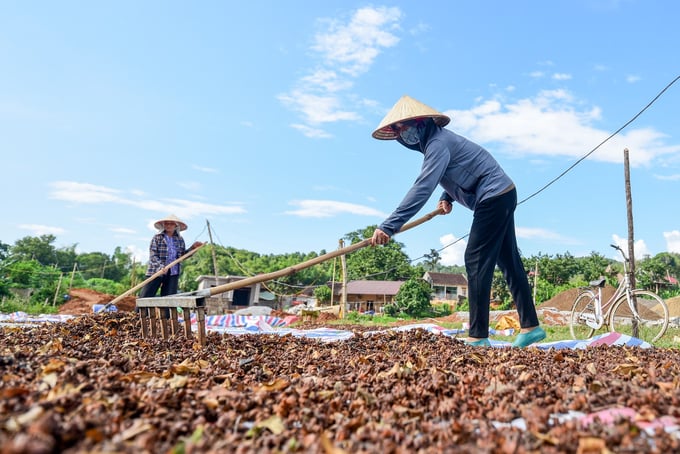June 21, 2025 | 03:34 GMT +7
June 21, 2025 | 03:34 GMT +7
Hotline: 0913.378.918
June 21, 2025 | 03:34 GMT +7
Hotline: 0913.378.918

Agriculture's investment is limited and farmers face risks with their backlog products. Photo: Tung Dinh.
On the morning of November 1, the National Assembly continued to discuss in the hall to evaluate the results of implementing the 2023 socio-economic development plan and the expected socio-economic development plan for 2024.
Due to a large number of speaking registrations, the Vice Chairman of the National Assembly Nguyen Duc Hai requested delegates to speak briefly to avoid repetition, the maximum speaking time is 5 minutes and the maximum debate time is 2 minutes.
After the morning break, Minister of Health Dao Hong Lan will explain and clarify some issues of concern to delegates. At the end of the morning session, the Governor of the State Bank Nguyen Thi Hong and several Ministers will give their explanations.
Participating with comments at the meeting, delegate Nguyen Tuan Anh (Binh Phuoc) said that the Government's report mentioned many economic development solutions. The report includes solutions to promote restructuring and agricultural economic development associated with new rural construction. The Government's report assesses that in 2023, the agricultural sector will develop stably and continue to be a solid support of the economy in difficult times.
However, delegates reflected that investment in agriculture is still limited, and farmers face many risks when their products cannot be sold. Delegates requested the Government, relevant ministries and branches to focus on analyzing and evaluating the reality and thorough causes of this situation to overcome shortcomings and limitations, ending the chorus of "good harvest - bad price".
Delegates requested the Government and ministries to research and create favourable conditions and improve the business and investment environment. This is to support businesses, attract capital and resources for agricultural development, and remove problems in markets, prices, and materials for farmers.
Ministries and branches need to work together to remove difficulties in applying for permission to build infrastructure for cultivation, animal husbandry and work for agricultural development.
In addition, the stability of policy planning in each agricultural field is low, the management and implementation of planning are lacking discipline, and there is a lack of effective sanctions. These limitations need to be resolved to create conditions for agricultural development in the future.
The State Bank needs to accompany agricultural businesses and have special preferential policies for green agriculture, creating conditions for businesses to access capital. This is to help them resolve encountered challenges and contribute to the development of Vietnamese agriculture.
Translated by Hoang Duy
/2025/06/17/3942-2-143243_548.jpg)
(VAN) Recently, in Sweden, the Secretary of the Binh Dinh Provincial Party Committee presented the Investment Registration Certificate for the 'Polyester Fabric Recycling Complex' project to SYRE Impact-AB Company.
/2025/06/12/3721-2-202745_83.jpg)
(VAN) TH made an impression at Seoul Food 2025 with its line of natural beverages, paving the way for Vietnamese food products to enter the South Korean market.

(VAN) Soc Trang's success in rice exports stems from a strategy of developing fragrant and specialty rice cultivation areas and standardizing production toward low-emission practices.
/2025/06/11/1311-5-120811_839.jpg)
(VAN) The pig farming industry is facing the challenge of comprehensive restructuring to meet requirements for quality, safety, traceability, and market expansion both domestically and for export.

(VAN) Vietnam considers participating in ALGROALBA in order to expand agricultural production, coordinate the assessment and effective exploitation potential land.
/2025/06/05/5314-1-184727_407.jpg)
(VAN) From seemingly worthless fish scales and skin, enzymes and lactic ferments can transform by-products into peptides, opening a sustainable, effective business direction and elevating Vietnamese seafood.

(VAN) TTC AgriS and IFC signed a strategic partnership to develop a sustainable agricultural value chain, aiming to achieve the Net Zero target by 2035.